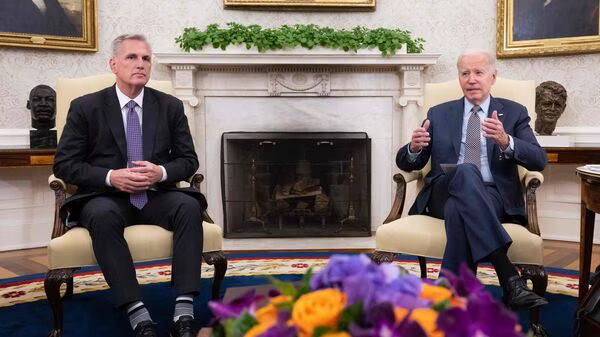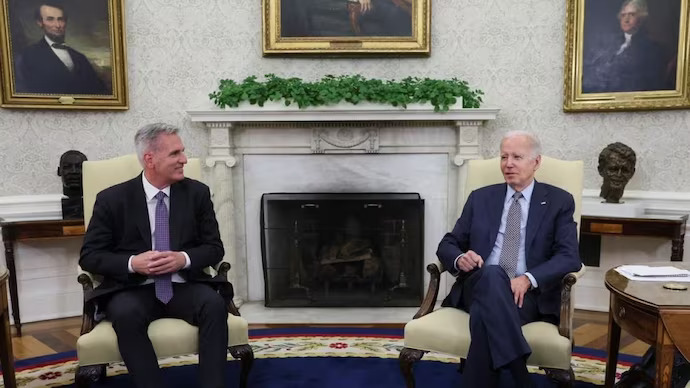Biden and McCarthy finalize US debt deal: President Joe Biden and Republican House Speaker Kevin McCarthy on Sunday reached a deal to temporarily suspend the debt ceiling and cap some federal spending in order to prevent a U.S. debt default.
The deal, which still needs to be approved by Congress, would suspend the debt ceiling until December 31, 2024. It would also cap non-defense discretionary spending at 2023 levels in 2024, and increase it by 1% the year after.
In addition, the deal would boost total defense spending to $886 billion, in line with Biden’s 2024 budget spending proposal. It would also claw back much of the unused COVID relief funds, and make stricter work requirements for some federal programs.
Biden and McCarthy battled fiercely over imposing stricter work requirements on low-income Americans for being eligible for food and healthcare programs.
No changes were made to Medicaid in the deal, but the agreement would impose new work requirements on some low-income people who receive food assistance under the program known as SNAP up to age 54, instead of up to age 50.
The deal is a victory for both Biden and McCarthy. Biden gets the debt ceiling suspension he needs to avoid a default, while McCarthy gets the spending caps he has been seeking.
The deal is also a relief to financial markets, which had been bracing for a potential default. The yield on the 10-year Treasury note fell sharply after the deal was announced, and stock prices rose.
The deal is not without its critics. Some Democrats argue that the spending caps are too harsh, and that they will harm essential programs. Some Republicans argue that the debt ceiling suspension is too generous, and that it will encourage future reckless spending.

Despite the criticism, the deal is likely to be approved by Congress. Both parties are eager to avoid a default, and they are likely to view the deal as the best way to do that.
The deal is a temporary solution to the debt ceiling problem. The debt ceiling will need to be raised again at some point in the future. However, the deal buys the government some time to address the issue in a more comprehensive way.
The new bill would require the Biden administration to follow through with a plan to end the current pause on student loan repayments by late August.
